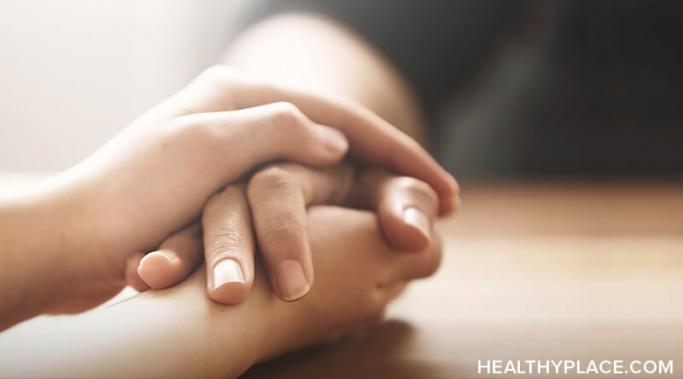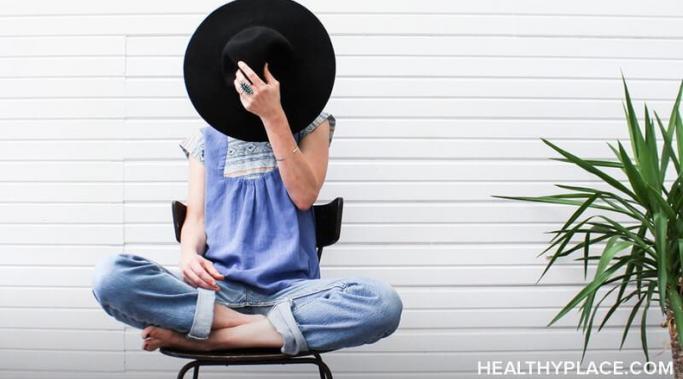Blogs
Living with anxiety can be at best uncomfortable and at worst debilitating. Naturally, we want to overcome it. While there are no quick fixes, happily there are fixes. Anxiety treatment is quite personal, and there's a wide variety of approaches that people can explore to kick their anxiety to the curb.
It's always the easiest to learn when material is taught right in line with your learning style, with or without adult attention-deficit/hyperactivity disorder (ADHD). I think the flip side of any learning style is your ability to support your learning style. There are ways to take notes and pay attention that enhance your learning style no matter the lecturer's style. I'm not doing a great job right now in my current class at supporting my own style, because sometimes it feels like it takes too much work.
I have heard a phrase repeated by some in the mental health community. “We just want to be treated like everyone else.” Really? I don’t. Why? Because I certainly am not like everyone else and if you apply their standards to me I lose.
Another thing I’ve heard. People with mental illness should be held accountable for their actions just like everyone else—there it is again, “just like everyone else.” I understand the sentiment. It may be what they’re saying is “we don’t want to be discriminated against. Treat us like everyone else.”
People often ask me what is mental health stigma anyway? I make it simple. Stigma is the widespread perception about people who have a mental illness. Stigma says "those people" are scary, violent or crazy. It is these terms that shed a negative light on people with a mental illness simply because they have a disorder. It is outright discrimination, it is a lack of knowledge, and a clear indication that a great number of people who believe this are severely ignorant and misinformed. Self-stigmatization is that same thing, only the mental health stigma comes from within.
When Dr. Dan Siegel talks about posttraumatic stress disorder (PTSD) and integration in trauma recovery, he explains PTSD symptoms as pulling survivors between the two extremes of a riverbank: On one side is rigidity and on the other side, chaos.
When I am having a panic attack, I have a medication I take to help me calm down. I carry these prescribed pills with me and keep a supply in my house and car. I only take this medication when I am positive a panic attack is occurring. It is an acute treatment, not a daily regimen. As you’d expect, the panic and anxiety medication has side effects.
If you look at my records from Richmond State Hospital, you'll see that I am a marijuana smoker. I don't think this should be part of my record since I smoked it only twice, both times for medical reasons. But because marijuana is not approved for medical use in Indiana, that apparently makes me a marijuana addict. It makes me wonder: When does drug experimentation become drug addiction?
Yesterday I gave a talk about bipolar disorder to a group of students in 11th grade for the Bipolar Disorder Society of British Columbia. I have given this talk many times and, in general, students love it. It might just be because they get out of math class for the day, or, possibly, I do a good job. Who can say?
We get feedback from every teen we give this talk to. After the talk, I review all the feedback and make sure there are no issues with it (such as a teen in immediate need to help). And yesterday, one of the feedback forms called me an ego-stroking b*tch.
And, I have to say, this never happens. The students are normally a very good audience and their feedback is usually quite genuine. Sometimes they have a comment on something they think can be improved, which is entirely legitimate, but never, has anyone called me a b*tch before.
Out of the class of 30, that was the only negative thing. But it’s the only thing I can think about. Between my bipolar obsessiveness and my depressive negativity, I seem to be solely focused on the negative.
Whether you are a parent with depression struggling to raise children or a new mom suffering from postpartum depression, know that you are not alone.
"I do not want to live in a world where everything I do and say is recorded. That is not something I am willing to support or live under." - Edward Snowden
The recent revelations by Edward Snowden as to the extent of American spying, is the closest most people will get to experiencing schizophrenic paranoia. The idea that everything you do on your computer is being stored and analyzed by algorithms for use by the state would give anyone the creeps. For a person who suffers from intense paranoia, it only increases the discomfort ten-fold.







